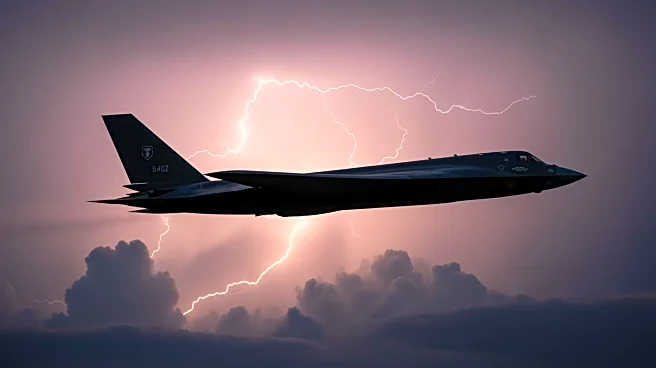What's Happening?
The United States Africa Command (AFRICOM) has conducted several airstrikes across Africa, primarily targeting extremist groups as part of counter-terrorism operations. These actions have sparked debates regarding sovereignty, civilian safety, and their
long-term effectiveness. Notable instances include the 1998 missile strikes on Sudan's Al-Shifa Pharmaceutical Factory, alleged to be linked to chemical weapons and Osama bin Laden, and the 2016 airstrikes in Libya aimed at defeating Islamic State forces. While these operations have disrupted militant activities, they have also raised humanitarian concerns and questions about the balance between security efforts and civilian protection.
Why It's Important?
The U.S. military's involvement in Africa through airstrikes has significant implications for international relations and regional stability. While these operations aim to weaken extremist groups, they often lead to complex outcomes, including political instability and humanitarian challenges. The destruction of vital infrastructure, such as the Al-Shifa Pharmaceutical Factory, highlights the potential for unintended consequences that can exacerbate local crises. These actions underscore the need for comprehensive strategies that integrate security measures with governance reforms and community engagement to ensure sustainable peace and development.
What's Next?
Potential U.S. airstrikes in Nigeria are under discussion, as the country faces threats from Boko Haram and the Islamic State West Africa Province (ISWAP). The U.S. has already provided aircraft and intelligence support to aid Nigeria's counter-terrorism efforts. Any future involvement would likely focus on assisting Nigerian authorities in combating extremist activities, emphasizing the importance of collaboration and strategic partnerships in addressing security challenges.
Beyond the Headlines
The U.S. military's airstrike strategy in Africa raises ethical and legal questions about sovereignty and the protection of civilian lives. The reliance on airstrikes as a counter-terrorism tool may lead to long-term shifts in U.S. foreign policy, emphasizing military partnerships over direct intervention. This approach could influence global perceptions of U.S. military operations and impact diplomatic relations with African nations.














